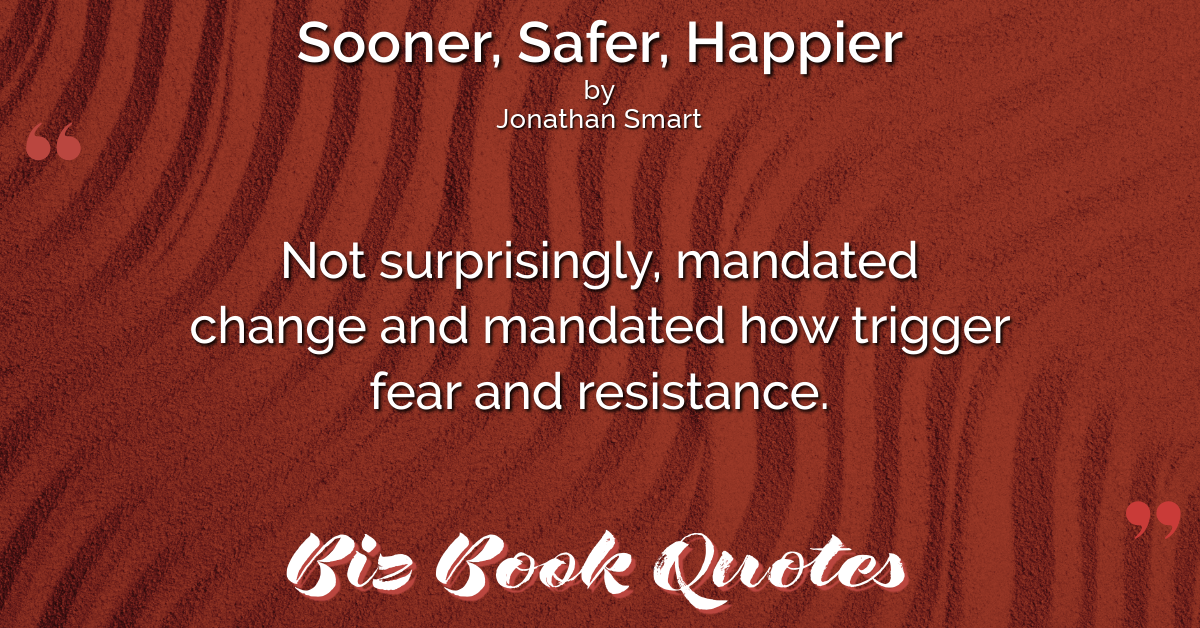 |
Not surprisingly, mandated change and mandated how trigger fear and resistance.
|
048 |
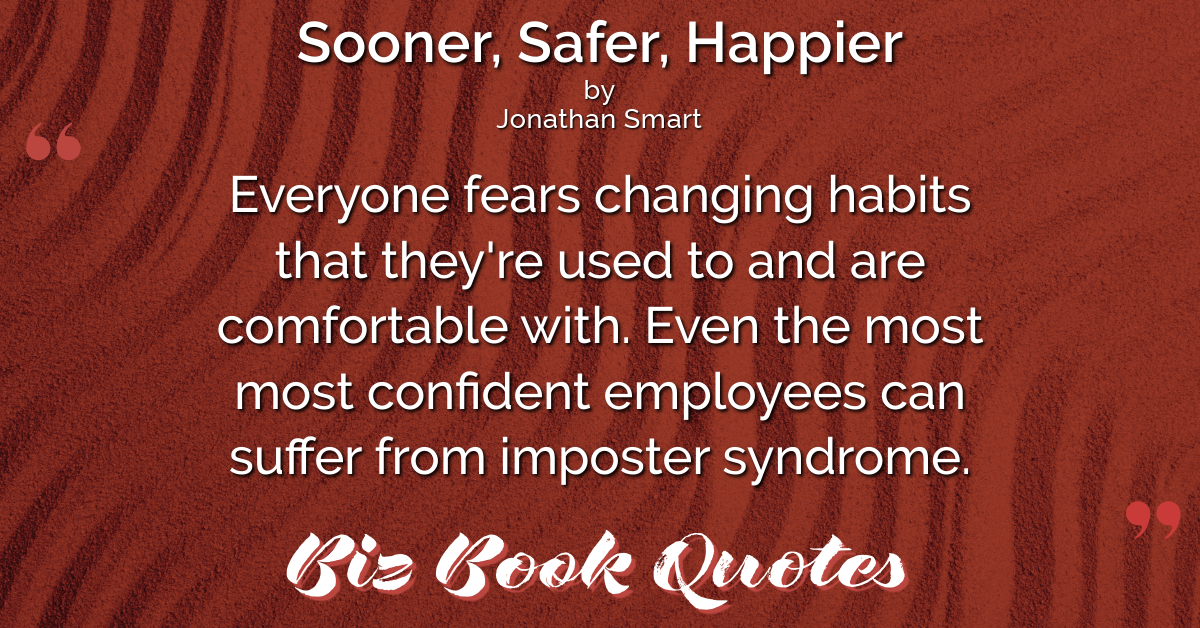 |
Everyone fears changing habits that they’re used to and are comfortable with. Even the most most confident employees can suffer from imposter syndrome.
|
049 |
 |
…craft a why for change that people will buy and that is unique to your organization. And then repeat that why.
|
058 |
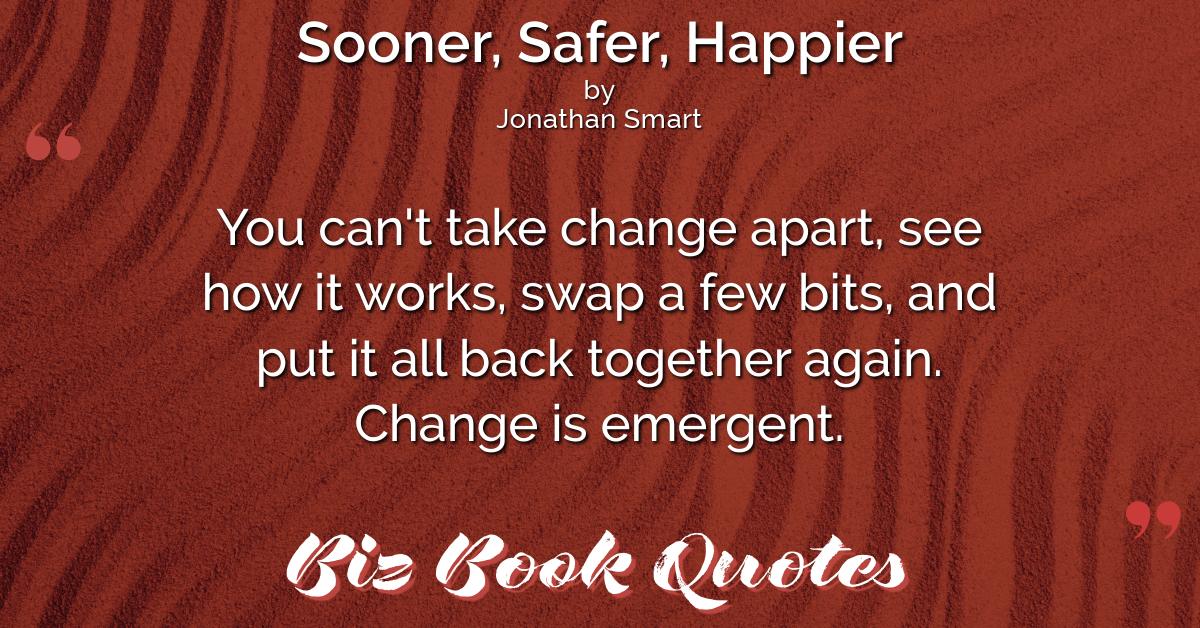 |
You can’t take change apart, see how it works, swap a few bits, and put it all back together again. Change is emergent.
|
058 |
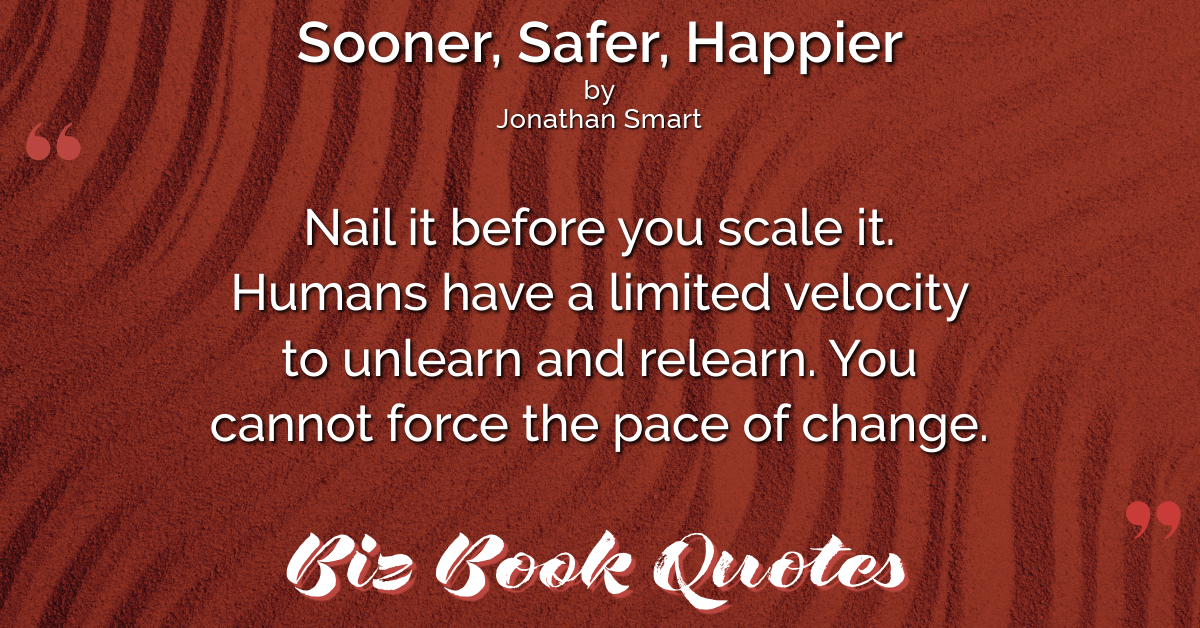 |
Nail it before you scale it. Humans have a limited velocity to unlearn and relearn. You cannot force the pace of change.
|
059 |
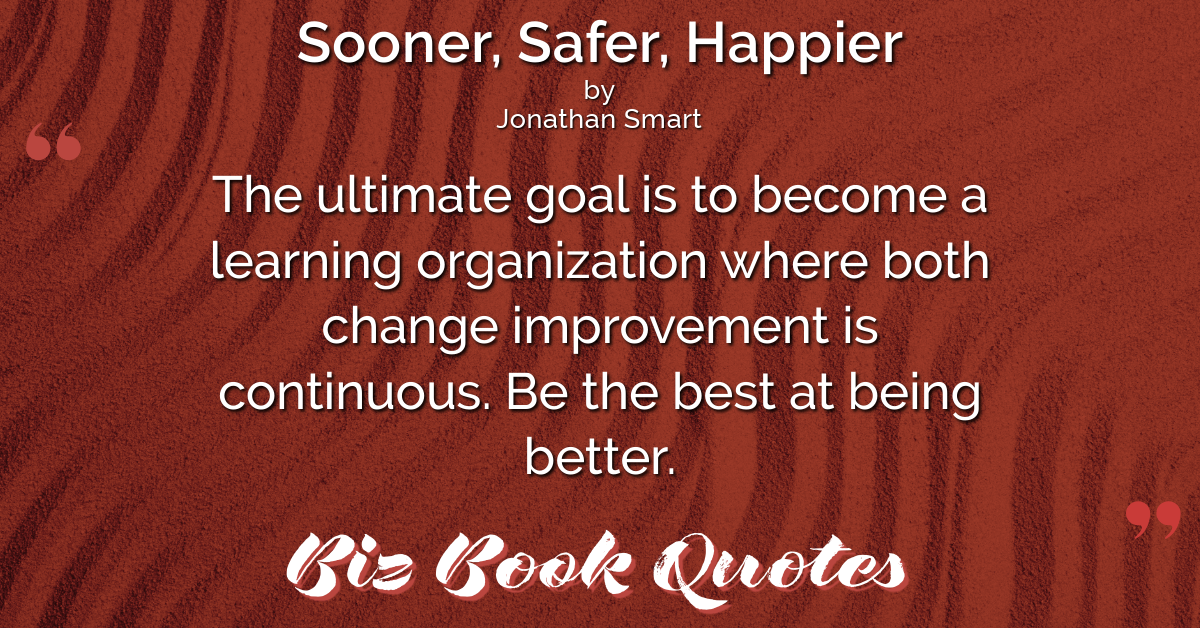 |
The ultimate goal is to become a learning organization where both change improvement is continuous. Be the best at being better.
|
063 |
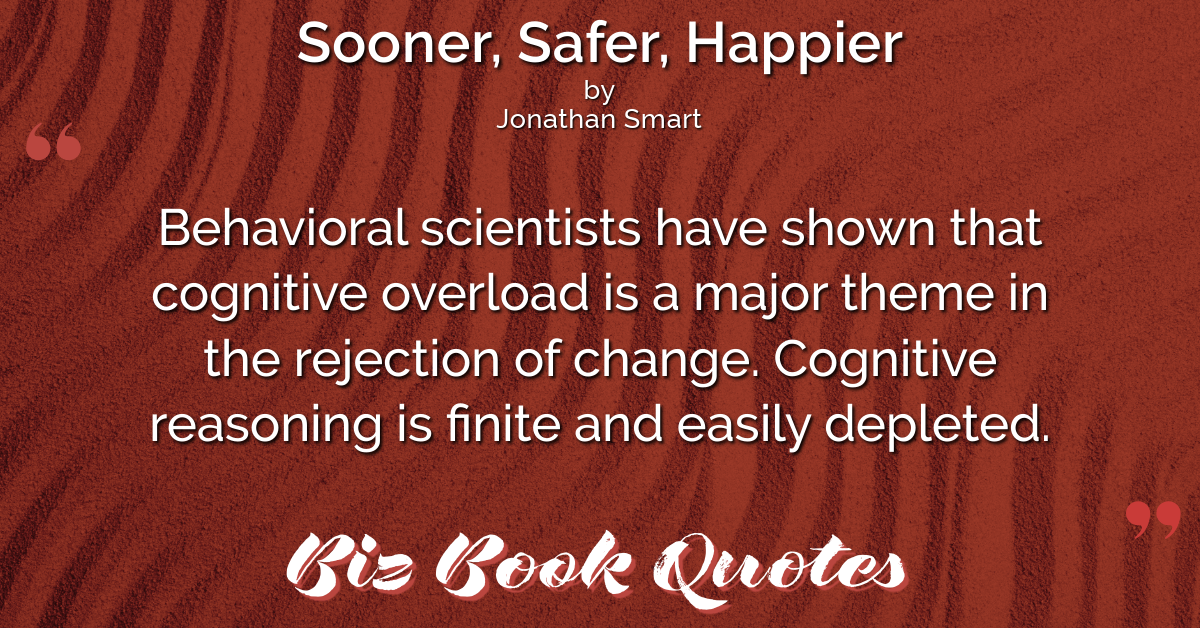 |
Behavioral scientists have shown that cognitive overload is a major theme in the rejection of change. Cognitive reasoning is finite and easily depleted.
|
072 |
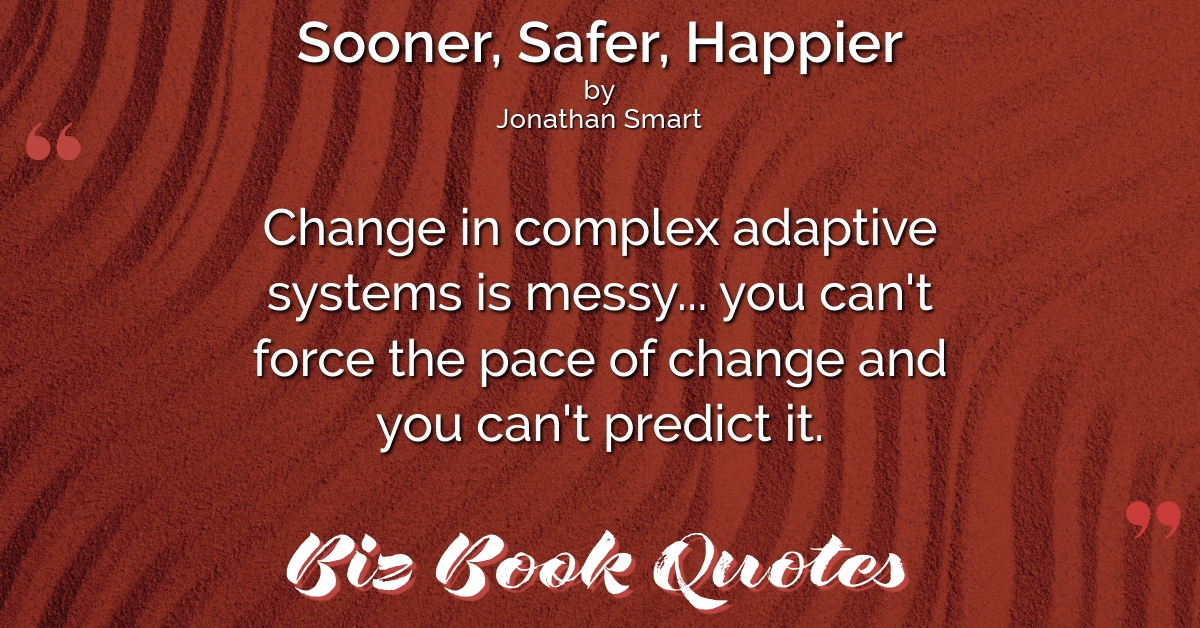 |
Change in complex adaptive systems is messy… you can’t force the pace of change and you can’t predict it.
|
079 |
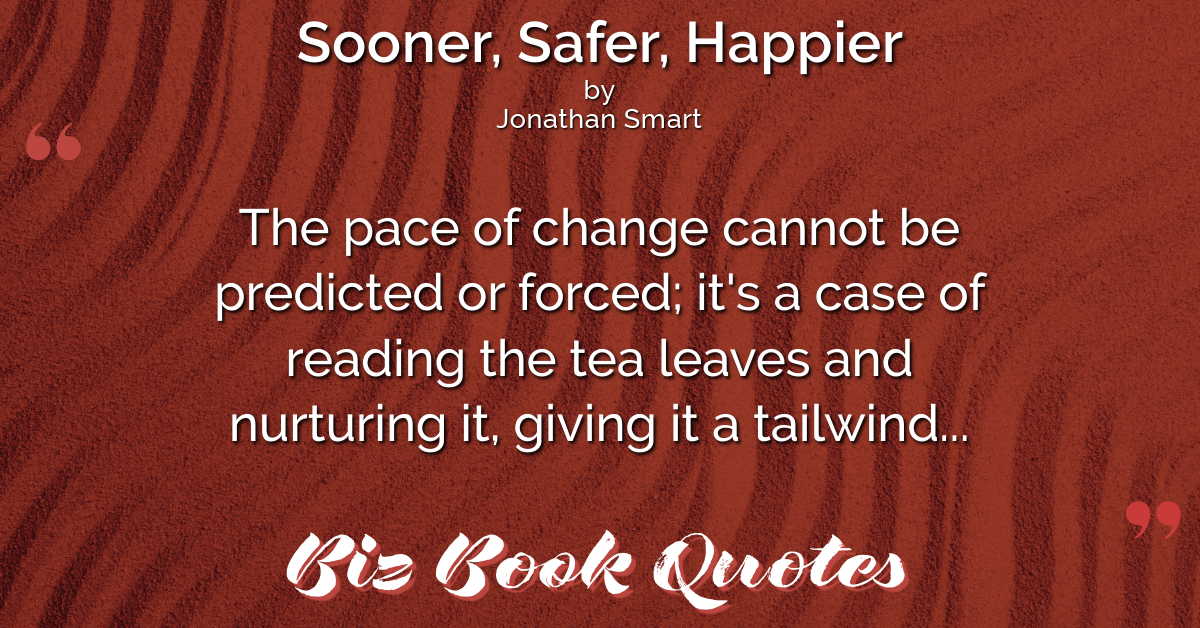 |
The pace of change cannot be predicted or forced; it’s a case of reading the tea leaves and nurturing it, giving it a tailwind…
|
083 |
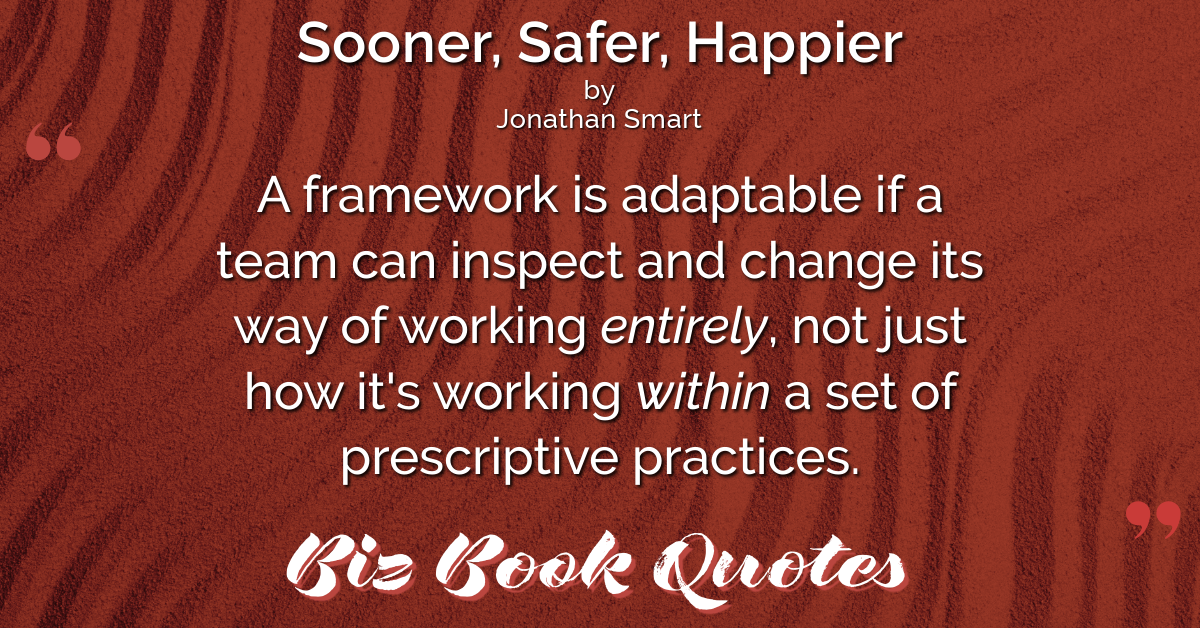 |
A framework is adaptable if a team can inspect and change its way of working entirely, not just how it’s working within a set of prescriptive practices.
|
101 |